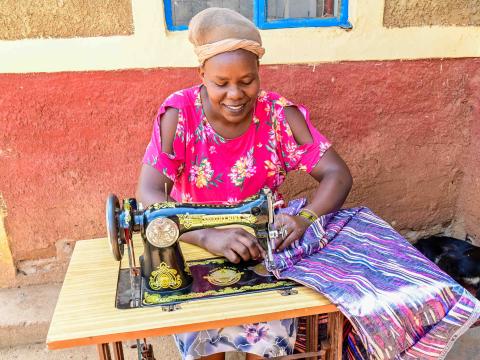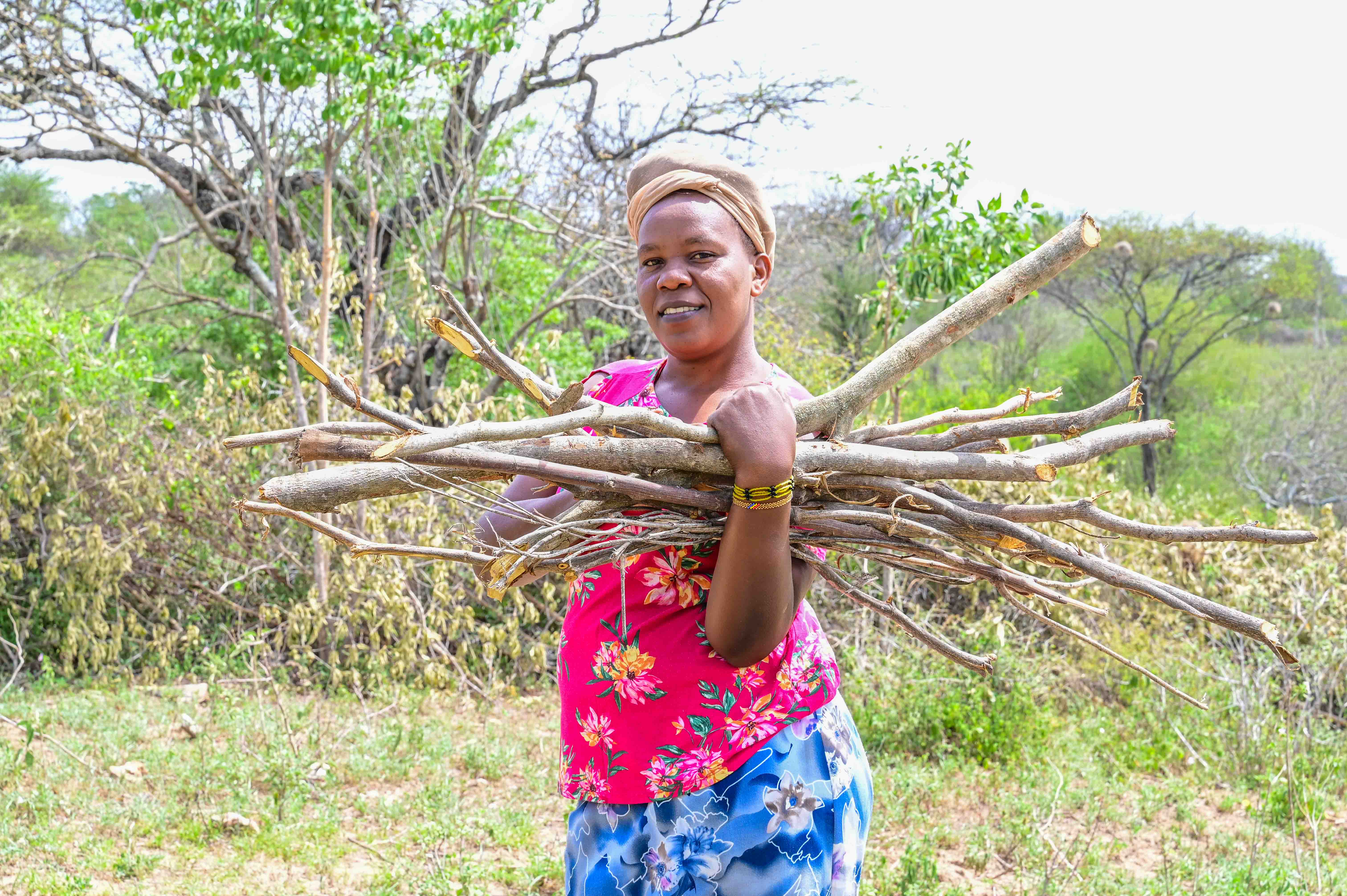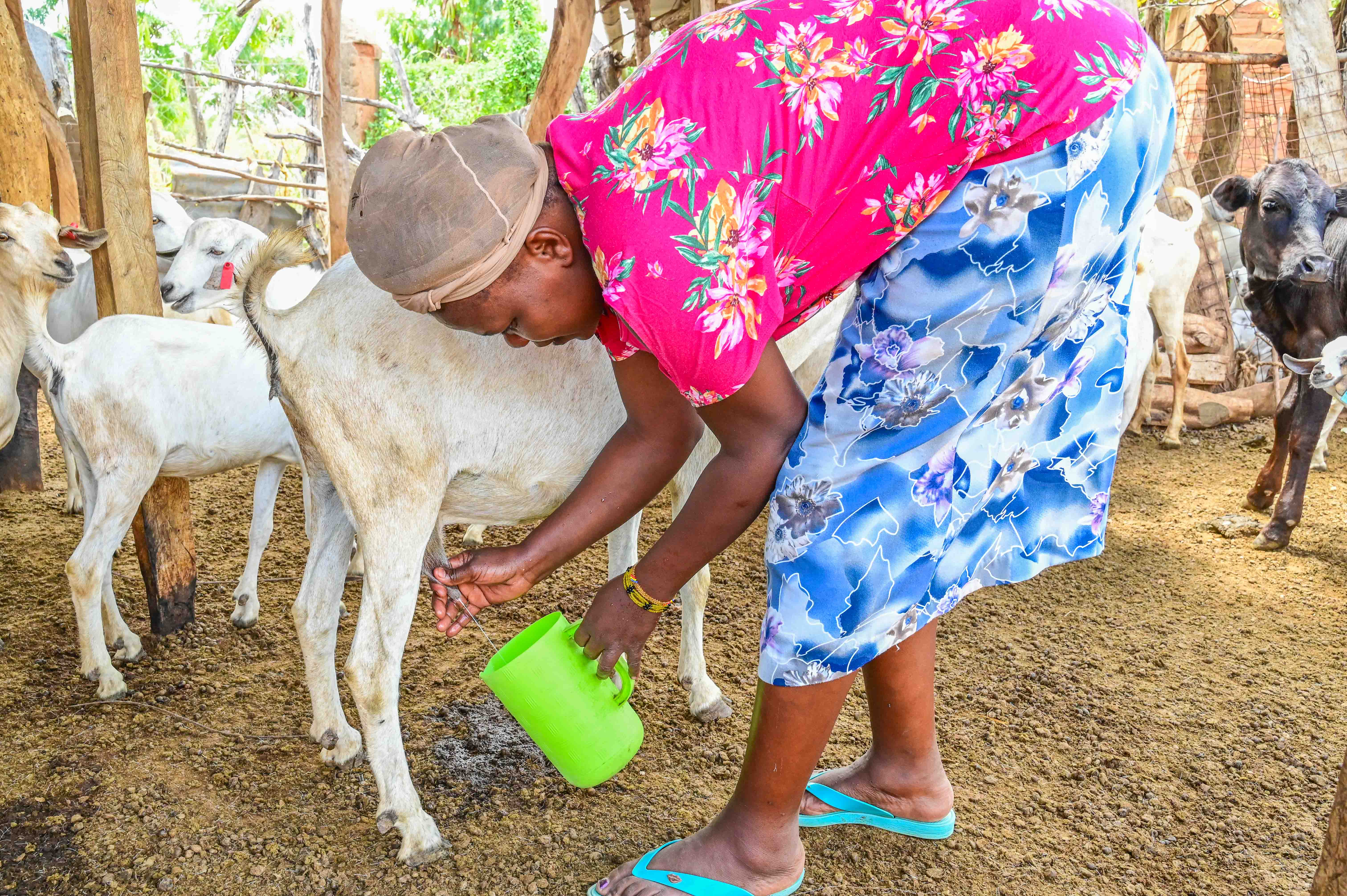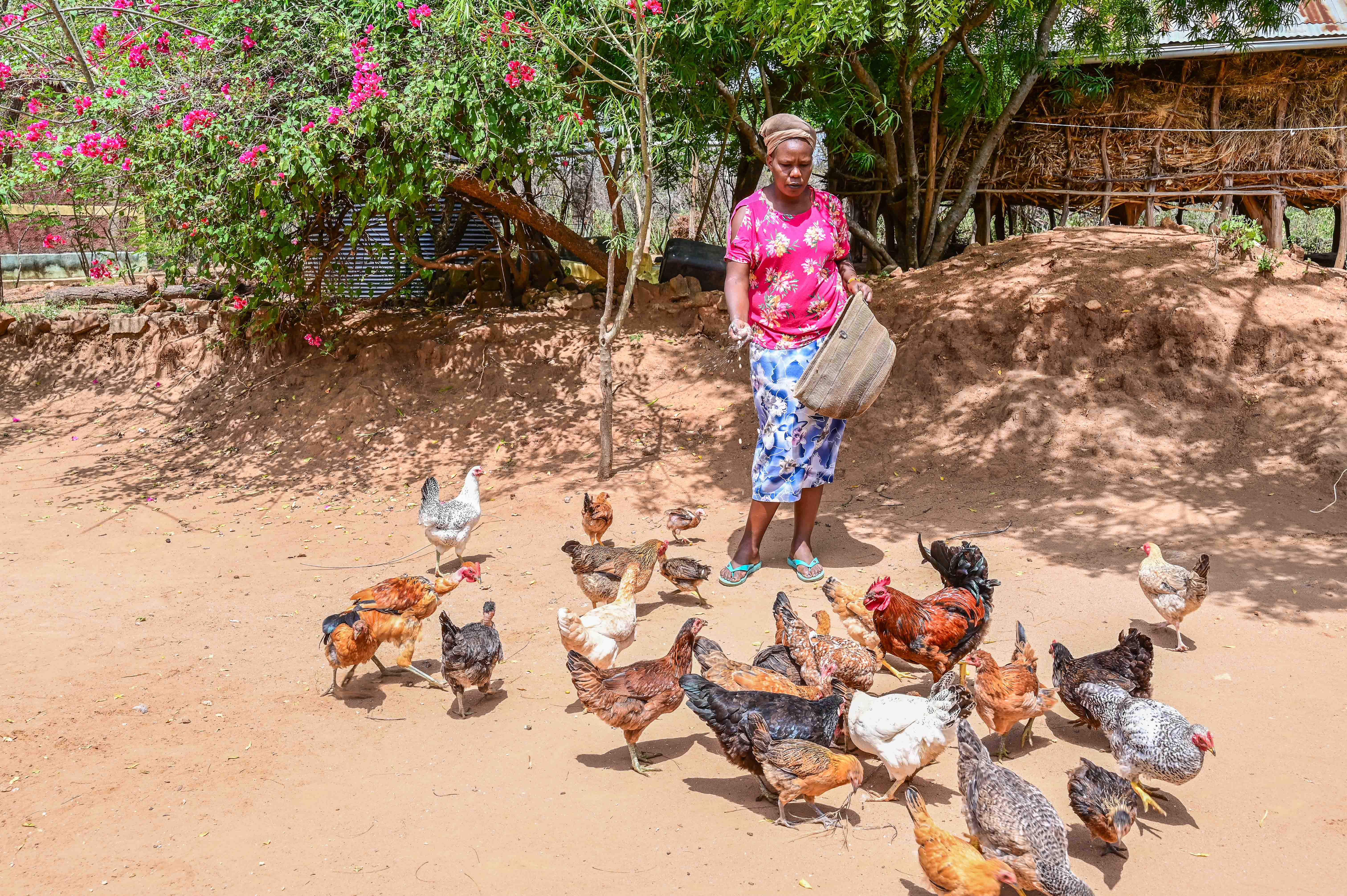Empowered to Thrive: Jeneffer’s Journey to Self-Reliance and Sustainability

Jeneffer Mwende, a 35-year-old single mother and person living with a disability (PWD), embodies a story of sacrifice, perseverance, and resilience.
Raised in Ngomano Village, Makueni County—where she resides with her mother, Lena, and her daughter, Faith, Jeneffer reflects on her journey with deep gratitude. “World Vision has made me feel included, important, and remembered,” she says, her voice filled with emotion.
Jeneffer was once a hotel owner, but two decades ago, she developed a growth in her right leg causing it to curve towards her left leg, therefore limiting her mobility. Combined with the responsibility of caring for her daughter Faith, who has special needs, she was forced to close her business. Faith, now 17, is blind and mentally handicapped, requiring full-time care. Many caregivers found the task of caring for Faith too demanding and left, making it even harder for Jeneffer to work.

After closing her business in 2024, Jeneffer attended a community sensitization meeting facilitated by World Vision, where she learned about the Farmer Managed Natural Regeneration (FMNR) approach. Inspired by the training, she was motivated to engage in environmental conservation.
With her mother's support, Jeneffer received two acres of land to practice FMNR. She immediately fenced and thinned the once-dense thicket, and with consistent pruning and maintenance, she began to see positive changes. One of the most significant benefits she observed was the readily available firewood within her homestead.

“We mostly use firewood for cooking, but collecting it was difficult for me because of my leg condition as we had to go far. Now, by caring for these trees, I have a steady supply of firewood for our home, and I can even get to sell the surplus in future to schools and hotels for income,” she says.
Beyond firewood, Jeneffer has noticed improvements in air quality, flourishing indigenous trees, and regenerating indigenous grass. Practicing FMNR has also helped her save time and money, allowing her to focus on other income-generating activities while spending more time with her daughter.
Due to her condition, Jeneffer is unable to walk long distances, carry heavy loads, or stand for extended periods. At times, she relies on painkillers to manage unbearable pain. To accommodate her physical limitations, she engages in less strenuous work, such as tailoring and poultry farming.
Using a manual sewing machine, Jeneffer primarily does clothing repairs, earning about KES 500 (USD 3.87) per week. This income helps her purchase frequently used essentials like soap for her daughter. She hopes to buy an electric sewing machine to reduce the strain on her leg.
In 2024, Jeneffer ventured into poultry farming, starting with eight chickens. Today, her flock has grown to about 30. She sells hens for KES 600-700 (USD 4.64- 5.42) and cocks for KES 800-1000 (USD 6.19- 7.74). Poultry farming provides her with an alternative source of income while requiring minimal physical strain.
Jeneffer also practices subsistence farming, growing maize, beans, and mangoes. To supplement their nutrition, they also drink milk from their goats and cattle, sometimes selling the surplus to boost their household income.

She claims that her disability and her daughter's condition have been a hindrance to finding a suitor. However, she remains determined to build a stable and fulfilling life for herself and Faith.
“I plan to one day buy land, build my own home, and become fully independent,” she shares. She also hopes to further invest in her businesses and expand her farming activities.
Jeneffer expresses deep gratitude for World Vision, whose training and support have transformed her outlook on life.

“I never realized these resources like firewood were within my reach. Now I know how to use them for my benefit. I have gained knowledge and can even train others. This project has increased my understanding of the environment,” she says. I am also thankful to World Vision because with their support, my daughter and I were able to register as persons living with disabilities.”
Jeneffer's inspiring journey is just one of many in Makueni County, where lives are being transformed through FMNR, thanks to World Vision’s Greater Regeneration for Evergreen Environment (GREEN) project, funded by the Australian NGO Cooperation Program (ANCP).
By Hellen Owuor, Communications Specialist, World Vision Kenya